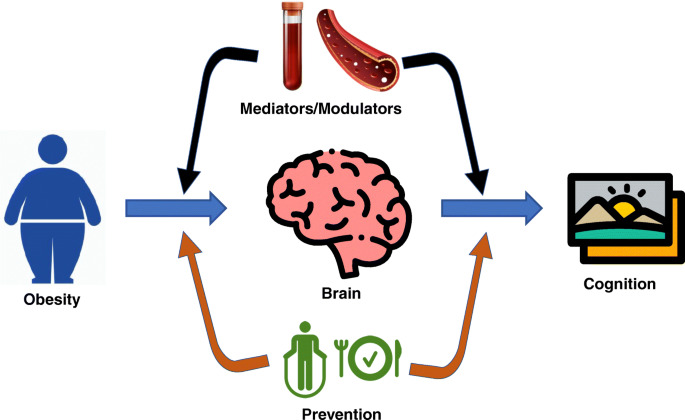MIND diet: Can it assist in improving cognitive ability?
People may start to notice a minor slowdown in processing speed and sporadic memory lapses as a result of ageing or an age-related illness like dementia.
Although these results have not been replicated in clinical trials, diet may provide protective advantages against cognitive deterioration.

An older person’s cognition may be improved by reducing daily caloric consumption by a small amount, according to a recent study.
Improvements in cognition were similar for those on the MIND diet and those on any minor calorie restriction, with no significant differences between the two groups.
As we age, cognitive change is typical. Even in your 20s and 30s, you may notice a modest reduction in memory and processing speed, however this is typically accompanied by advances in accumulated knowledge well into old age.
Observational studies imply that the Mediterranean diet may have positive effects on cognition, despite the fact that no specific vitamin has been found to stop cognitive decline.
The MIND diet, a combination of the Mediterranean and DASH (Dietary Approaches to Stop Hypertension) diets, and mild calorie restriction have now been examined for their impact on cognition.
Both diets had a somewhat positive impact on cognition, according to the study, but neither was noticeably superior to the other.
“This study results point to mild caloric restriction and an average weight loss of 5.5% as lifestyle factors that may support cognition in older adults,” said Molly Rapozo, a registered dietitian nutritionist and senior nutrition and health educator at the Pacific Neuroscience Institute in Santa Monica, California.
The MIND diet: what is it?
The acronym “MIND” refers to “Mediterranean-DASH Intervention for Neurodegenerative Delay.”
The MIND diet seeks to lessen dementia and the deterioration of brain health that frequently happens as people age. It combines elements of the Mediterranean diet with the Dietary Approaches to Stop Hypertension (DASH) diet, two highly well-known eating plans.
The DASH diet and the Mediterranean diet are two of the healthiest diets, according to many experts. They can lower blood pressure and lower the risk of heart disease, diabetes, and a number of other ailments, according to research.
However, scientists sought to develop a diet designed particularly to support better brain health and guard against dementia.
They mixed foods from the DASH and Mediterranean diets, which have been demonstrated to improve brain function, to achieve this.
For illustration, both the DASH diet and the Mediterranean diet advise consuming lots of fruit. Berries in particular have the greatest supporting data, although eating fruit in general has been related to increased brain function.
So, while the MIND diet does not emphasize fruit consumption in general, it does advocate eating berries.
As of right now, there are no fixed rules for adopting the MIND diet. You can easily increase your consumption of the 10 items that the diet suggests and decrease your consumption of the 5 foods that it advises you to limit.
Cutting calories may benefit the brain.
A total of 604 participants were enlisted in the study by the researchers. Despite eating poorly and reporting a family history of Alzheimer’s, none of the participants tested negatively for cognitive deterioration. Body mass index (BMI) > 25 (overweight) was present in each individual.
The participants were randomized into two groups at random: 301 individuals were assigned to the MIND diet, and the remaining 303 individuals continued to follow their regular dietary regimen.
Additionally, as one of the study’s objectives was to reduce body mass by 3-5%, the researchers decreased everyone’s daily calorie consumption by 250 calories.
For three years, the participants were instructed to stick to their diet, and throughout that period, they received frequent dietary counselling over the phone and in person. To make sure both groups were getting the right amount of calories, advice was given about portion size. The MIND diet participants also received instructions on which new meals to incorporate and which ones they should avoid.
Four times over the three years, the researchers checked in with the individuals to evaluate their mental functioning, blood pressure, diet, level of physical activity, and usage of medications.
Participants had a variety of cognitive tests administered by researchers who were not aware of which diet group they were in after six months, then at 12, 24, and 36 months. To detect any abnormalities in the brain, some also had magnetic resonance imaging (MRI) scans.
Inflammation and oxidative stress are reduced by the MIND diet?
The particular mechanisms by which the MIND diet operates are yet unknown, according to the available research. However, researchers believe that it might function by decreasing inflammation and oxidative stress.
Free radicals, which are unstable chemicals, build up significantly in the body and cause oxidative stress. Cells are typically harmed by this. Particularly susceptible to this kind of harm is the brain.
Your body naturally responds to injury and infection with inflammation. However, inflammation can also be damaging and a factor in many chronic diseases if it is not well controlled.
Inflammation and oxidative stress can both hurt your brain. They have been the focus of some recent Alzheimer’s disease prevention and treatment initiatives.
Lower levels of oxidative stress and inflammation have been linked to following the DASH and Mediterranean diets.
The MIND diet is a combination of these two diets, thus the foods that make up the MIND diet likely also have antioxidant and anti-inflammatory benefits.
By shielding the brain from oxidative stress, antioxidants in berries and vitamin E in olive oil, green leafy vegetables, and almonds are thought to improve brain function.
Omega-3 fatty acids, which are present in fatty fish, are also well known for their capacity to reduce brain inflammation and have been linked to a slower loss of cognitive function.
The dangerous beta-amyloid proteins may be reduced by the MIND diet.
Researchers think that by lowering potentially hazardous beta-amyloid proteins, the MIND diet may also benefit the brain.
Protein fragments called beta-amyloid proteins can be found in the body naturally. However, they can assemble into plaques that develop in the brain, obstructing neural connections and ultimately resulting in the death of brain cells.
In fact, a lot of scientists think that these plaques are one of the main reasons why Alzheimer’s occurs.
Studies on animals and in cells indicate that the antioxidants found in several MIND diet items may aid in preventing the development of beta-amyloid plaques in the brain.
The Summary
The MIND diet was developed to decrease the deterioration of brain function that can occur with ageing and prevent dementia. The diet promotes the consumption of fruits, vegetables, whole grains, olive oil, fish, chicken, beans, and wine.
These meals provide a variety of nutrients that support healthy brain function, perhaps by lowering oxidative stress, inflammation, and beta-amyloid plaque development.
According to preliminary study, strictly adhering to the MIND diet is linked to a lower risk of Alzheimer’s disease and a slower decline in brain function over time. To fully comprehend the consequences of the diet, more research is required.
Future study revealing that the MIND diet provides additional health advantages linked to the Mediterranean and DASH diets won’t come as a surprise because it is a combo of these two diets.
But for now, the MIND diet is a terrific and easy-to-follow method if you’re seeking for a way of eating that focuses on maintaining brain function as you age.
REFERENCES:
- https://www.medicalnewstoday.com/articles/can-the-mind-diet-or-cutting-daily-calories-improve-cognition
- https://www.healthline.com/nutrition/mind-diet
- https://www.thorne.com/take-5-daily/article/what-effect-does-calorie-restriction-have-on-the-brain
For Mental disease medications that have been suggested by doctors worldwide are available here https://mygenericpharmacy.com/index.php?therapy=83
